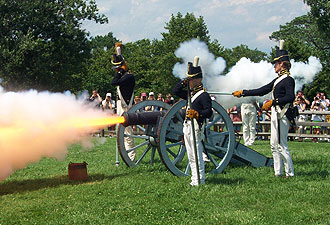Summary:
– What is testosterone?
– Testosterone dosage
– Testosterone supplementation
Testosterone is a sex hormone or steroid par excellence, more precisely the primary androgenic hormone, i.e., a male hormone.
It is produced in men and women in different quantities that can be observed to highlight various dysfunctions.
Let’s take it from there.
What is testosterone?
Testosterone is an androgenic steroid hormone synthesized from cholesterol.
It is produced and secreted mainly (95%) in the testicles and the adrenal glands in men.
– In women, it is produced in smaller quantities in the ovaries and adrenal glands.
The synthesis of testosterone is controlled by a neuro-hormone: GnRH (pituitary Gonadotropin-Releasing Hormone). The cycle of testosterone production begins in the hypothalamus, which secretes two hormones that stimulate testosterone production:
– the luteinizing hormone (LH);
– and follicle-stimulating hormone (FSH).
Note that a negative feedback loop controls testosterone production: if testosterone levels are too high, the secretion of GnRH is inhibited, resulting in a decrease in the production of LH, FSH, and, therefore, testosterone.
The prominent role of testosterone
Testosterone has a vital role at different times in life.
Indeed, during embryogenesis, it allows sexual differentiation. Then, at puberty, testosterone is again produced in larger quantities to allow the maturation of sperm and the appearance of secondary sexual characteristics (voice, hair, size of the genitalia).
Thus, in men, testosterone is involved in:
– sexual function (libido);
– the maintenance of a good general state of health;
– spermatogenesis;
– the increase of the muscular mass;
– Mood;
– skin;
– Hair;
– protection against osteoporosis;
– production of blood cells;
– decision making, aggression, etc.
In women, testosterone is produced in small quantities. It plays a role in the maintenance of sexual desire, the manufacture, growth of muscles, blood cells’ production, and protection against osteoporosis. It is also a precursor to estrogen.
Anabolic role of testosterone
In addition to its androgenic role (masculinization, deeper voice, hair system, etc.), testosterone has an anabolic role:
– It allows the formation of tissue, muscle, and bone growth.
– Besides, it allows for increased formation of red blood cells and easier regeneration in injury or illness.
– It is also a hormone that makes it possible to lose fat more quickly by increasing the basic metabolism.
Testosterone can be found in free form (2-3%) or bound to a protein. These different forms condition the action of testosterone differently.
Testosterone dosage
A blood test for testosterone can be done:
– in men, to understand the dysfunction of sexual glands;
– in women, as part of a diagnostic procedure related to hirsutism (excess hair in areas that are not usually hairy).
Good to know: the dosage is most often done in the morning, on an empty stomach.
Normal testosterone values
They are based on age and gender.
|
Âge |
Hommes |
Femmes |
|---|---|---|
|
Prepubescent age |
0,3 à 3,5 nmol/L |
0,03 à 0,35 nmol/L |
|
Adult |
10,4 à 34,7 nmol/L |
0,7 à 2,8 nmol/L |
Pathological variations of testosterone

If testosterone levels vary physiologically with advancing age, this can also be a fair reflection of an individual’s health status and highlight different pathologies.
There are several possible explanations for an increased testosterone level:
– In men, it can be explained by external administration of testosterone or gonadotropins, hyperthyroidism, feminizing testis syndrome.
– In women, it can mean hirsutism (hyperandrogenism), polycystic ovary syndrome, ovarian or adrenal tumor.
A decreased rate may indicate several situations. In men, it may be:
– Insufficiency of testicular origin,
– of Cushing’s syndrome,
– the administration of synthetic androgens or estrogens or anti-androgens, a treatment for prostate cancer.
Good to know: According to a U.S. study, exposure to anti-androgen therapy in prostate cancer is associated with an increased risk of Alzheimer’s disease (+14%) and dementia (+20%) within 10 years.
Factors that can lower testosterone levels
Testosterone levels can be lowered by:
– diet;
– excessive alcohol consumption;
– stress;
– Depression;
– various pathologies;
– certain drug treatments.
Symptoms of testosterone deficiency
Given the vital role that testosterone plays in humans, a lack of testosterone can cause troublesome clinical symptoms:
– Fatigue;
– loss of energy;
– deterioration of sleep;
– cognitive impairment;
– libido disorders;
– weight gain;
– decreased muscle mass.
Testosterone supplementation
Once this deficiency has been proven through a blood test, a prostate exam, a check of the mammary glands, or a search for sleep apnea syndrome, your doctor may suggest testosterone supplementation.
Note: Testosterone supplementation in an overweight man may increase estrogen.
Good to know: While testosterone typically decreases with age, levels are very different from one individual to another, whether in the “prime of life” or later. Also, the effects of a possible deficiency can be felt very differently from one person to another.


